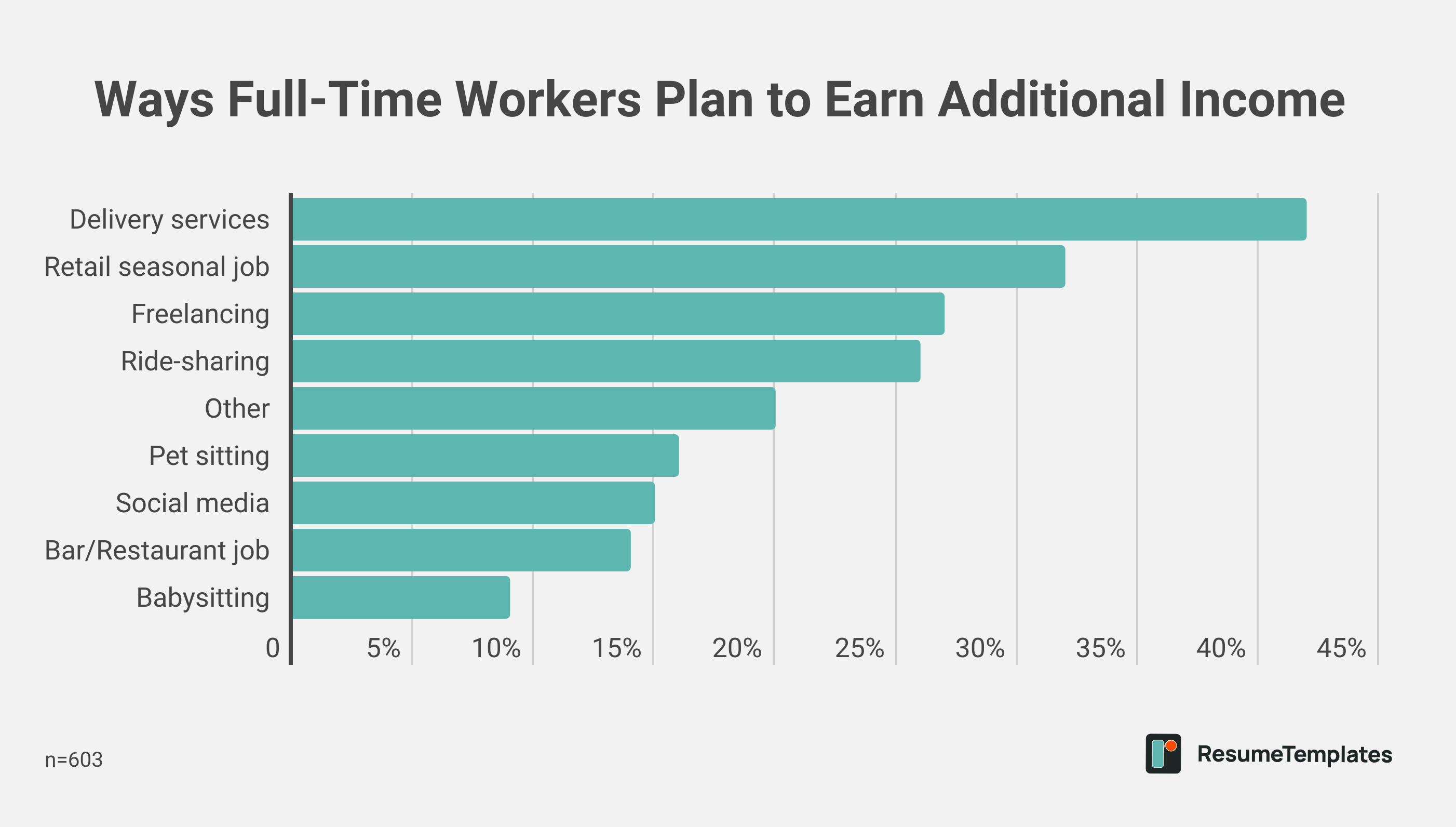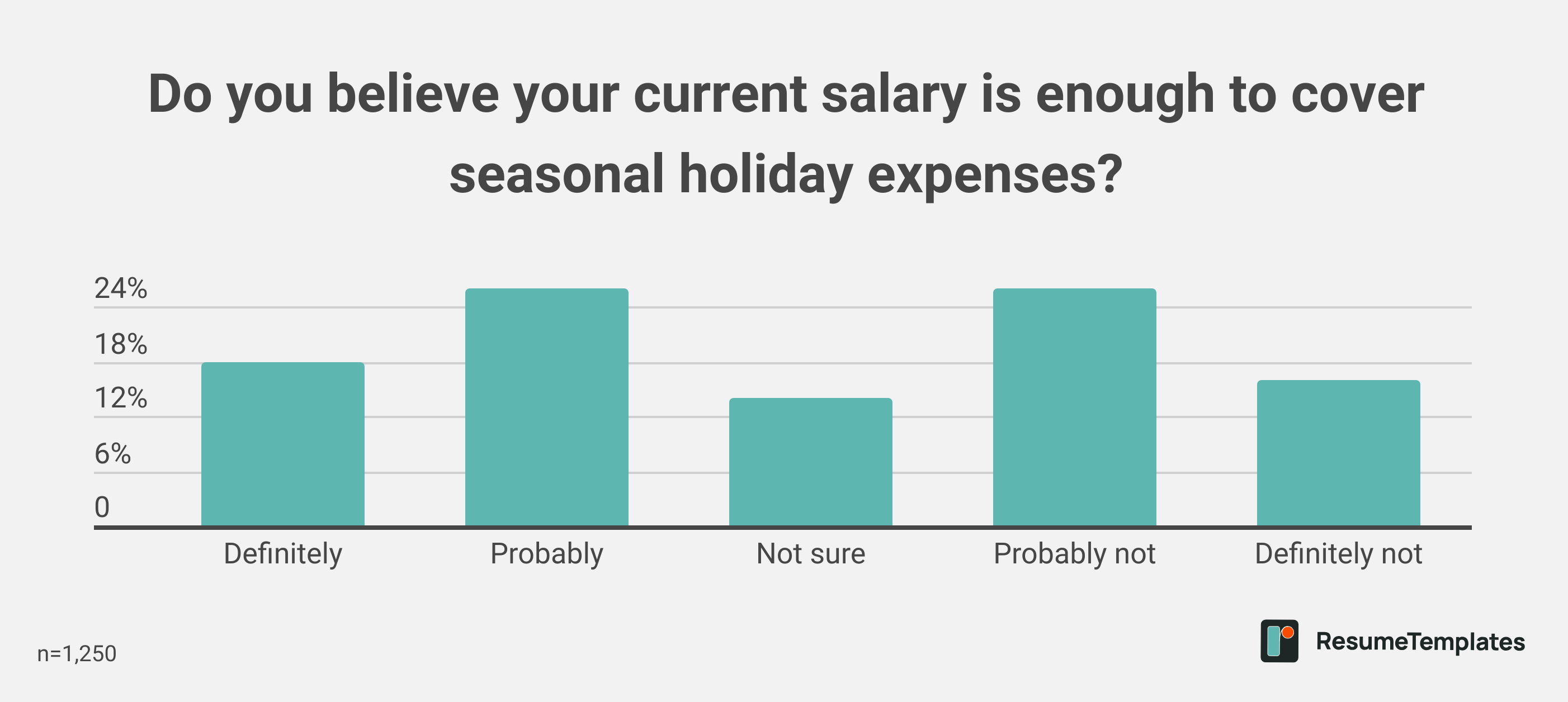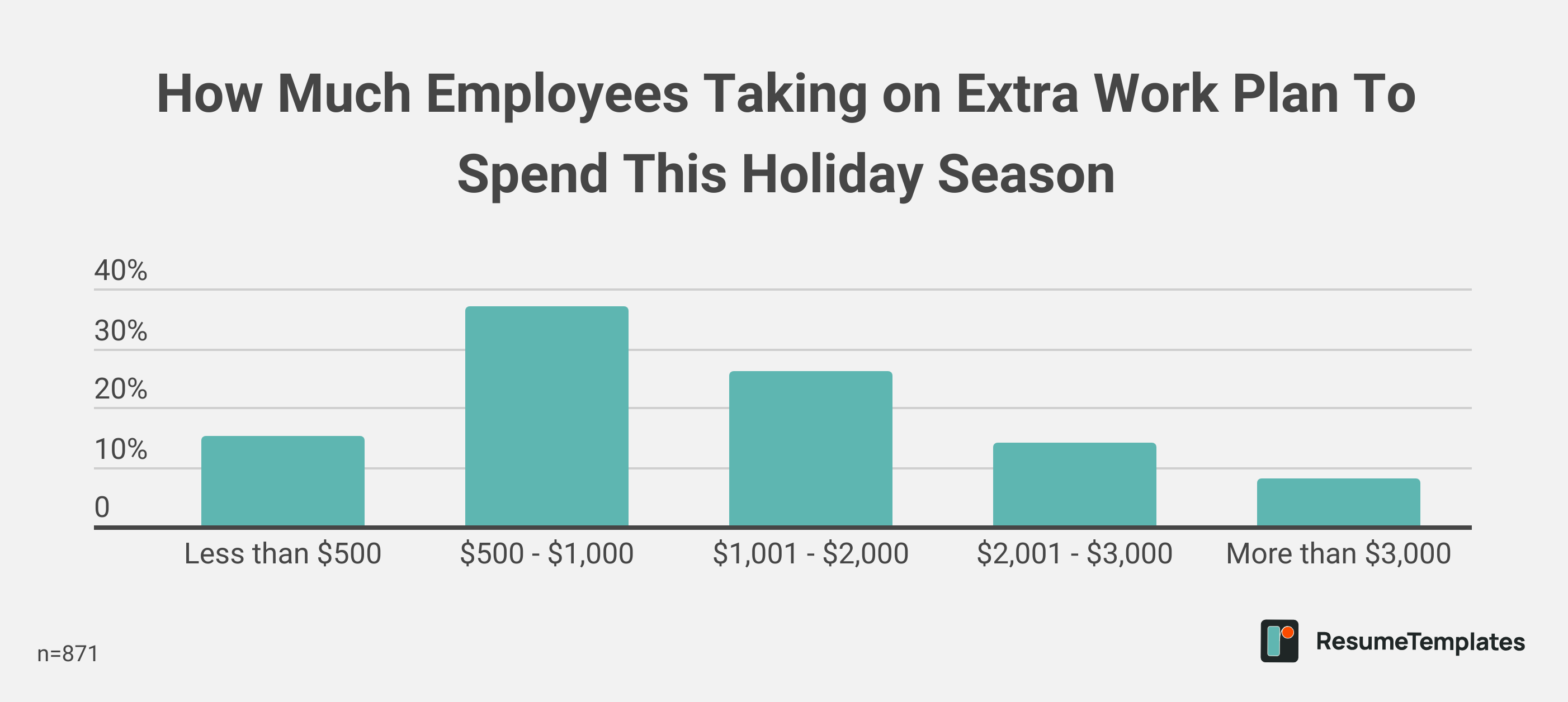Despite the fact that wages have grown more quickly than prices have risen, many Americans do not feel satisfied with their current level of purchasing power.
In November 2024, ResumeTemplates.com surveyed 1,250 full-time U.S. workers to determine if they feel their current salaries are sufficient to cover holiday expenses this year.
Study highlights:
- 70% of full-time employees will take on extra work to afford the holidays this year
- Workers will do gig work, seasonal retail jobs, and freelancing to boost income
- Majority of workers say they can’t afford the holidays on their current salary alone
- 3 in 10 people doing extra work say their productivity at their full-time job will decline
70% of Full-Time Workers Will Pick Up Extra Work To Afford the Holidays
To cover holiday-related expenses this year, 40% of full-time employees say they’ve already taken on extra work and 30% plan to.
To earn additional income, people are taking on one or a combination of the following: extra hours at their current full-time job (44%), working for another employer (36%), or self-employment (43%).
Among those opting to work for another employer or themselves, popular choices include delivery services (42%), such as food or package delivery, seasonal retail jobs (32%), and freelancing (27%) — such as writing or graphic design. Ride-sharing (26%) for services like Uber or Lyft is also common. Other options include pet or house sitting (16%) and social media influencing (15%), along with working in bars or restaurants (14%). Babysitting (9%) is considered less often, while 20% report taking on other types of work not specified in the list.

“Picking up seasonal work isn’t a new concept, but there are more options available now than ever before,” says Resume Templates’ chief career strategist Julia Toothacre.
“Gig work, seasonal jobs, and freelancing are some of the most popular options because they are meant to be short-term and temporary. Most of these positions are fairly easy to obtain since the work is often based on the skills workers already have, or companies are prepared to train seasonal employees with minimal experience.”
Less Than Half of Workers Say Their Current Salary Is Enough To Cover Holiday Costs
When asked if their current salary is sufficient to cover holiday expenses without taking on extra work, 42% say it’s either definitely not (16%) or probably not (26%) enough. In contrast, 18% report that their salary is definitely enough to cover these expenses, while 26% say it probably is. Another 14% are unsure.

Among those seeking extra income, 81% say it’s to cover gift costs, 50% for holiday meals and gatherings, and 38% for holiday travel.
“Many workers who used to have disposable income are now living paycheck to paycheck. Side jobs are one of the easiest ways to make up the difference and provide the holiday experience you want for yourself and your family,” says Toothacre.
1 in 5 workers seeking extra income plan to spend $2,000+ on the holidays
Of those seeking extra income, more than 20% plan to spend thousands of dollars on holiday expenses. Specifically, 15% of respondents anticipate spending less than $500, while 37% plan to spend between $500 and $1,000. Another 26% expect to spend between $1,001 and $2,000, and 14% foresee costs between $2,001 and $3,000. Finally, 8% plan to spend over $3,000 on holiday expenses.
Regarding earnings goals, 13% of respondents aim to earn $500 or less, while 31% are targeting between $500 and $1,000. Another 28% hope to earn between $1,001 and $2,000, and 17% want $2,001 to $3,000. Lastly, 12% are looking to earn more than $3,000.

3 in 10 Workers Taking on Extra Work Expect It To Reduce Their Productivity
When asked if taking on extra work has or will impact their productivity at their full-time job, 28% of respondents say it definitely (12%) or probably (16%) will. Meanwhile, 27% say it definitely will not, 29% say it probably will not, and 16% are unsure.
Looking ahead to next year, 53% of workers say they will definitely (19%) or probably (34%) need to take on extra work.
“In some industries and functions, the end of the year can be slower, which allows energy to be shifted to additional side work. But this isn’t the case everywhere, so workers need to balance expectations carefully,” says Toothacre.
“It’s also important to keep in mind that some companies restrict employees from working elsewhere. Before you take on additional work, check your contract and company’s policies to ensure you can work for another organization. Typically, these policies won’t affect freelance roles, where you’re self-employed, particularly if the work doesn’t compete with your primary employer’s business.”
Methodology: ResumeTemplates.com commissioned and launched this survey via Pollfish on November 7, 2024. In total, 1,250 U.S. full-time workers were surveyed. Media inquiries can be directed to [email protected].
Resume Templates offers free, HR approved resume templates to help you create a professional resume in minutes. Choose from several template options and even pre-populate a resume from your profile.